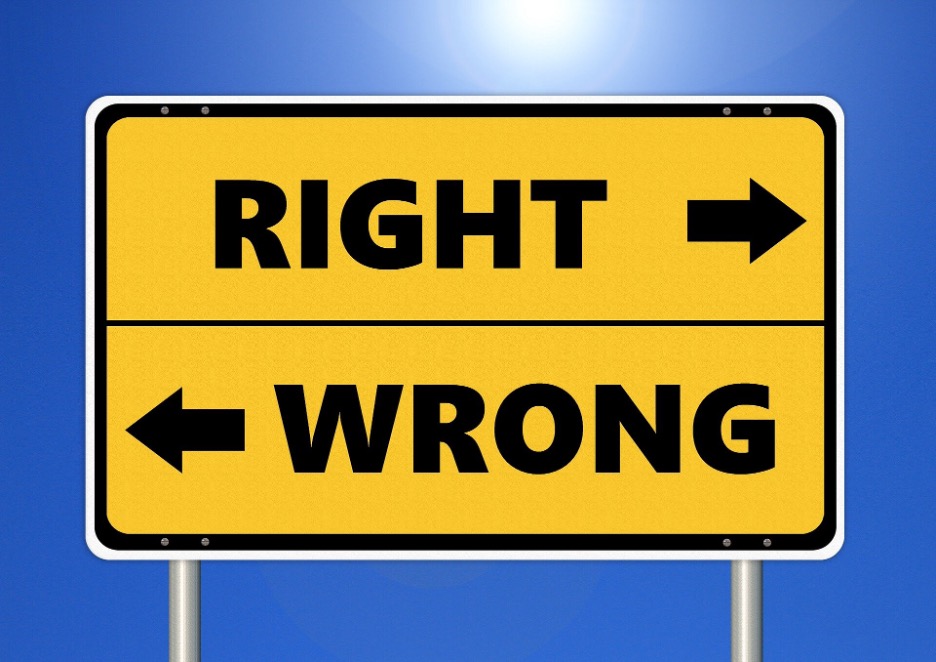
“Moral loyalty” generally refers to a commitment or allegiance to a set of moral principles or values. It involves adhering to ethical standards and behaving in a manner consistent with one’s moral beliefs. Moral loyalty goes beyond mere compliance with rules or laws; it reflects a dedication to principles that guide one’s actions and decisions.
Thats why some people will not gamble, even when its legal. Also, why a spouse might not cheat, even when the opportunity presents itself. So how far will your loyalty go, when a morality or ethical question is asked?
Morality and ethics are embedded mostly through family, community, religious and profesional ties.
As a Christian, Muslim or normal citizen, will you stop a gay person from being lynched by the mob at your personal security expense?
Do you agree that a thief should be burnt alive without having a fair hearing in court?
If a woman is harassed around you, will you defend her or blame her dressing for her predicament.
Here are some real-life examples that illustrate the concept of moral loyalty:
- Whistleblowers: Individuals who expose unethical or illegal practices within organizations demonstrate moral loyalty to the greater good. Despite potential personal risks such as job loss or retaliation, whistleblowers choose to prioritize their commitment to ethical standards over loyalty to the organization’s wrongdoing.
- Activists: People engaged in social or environmental activism often display moral loyalty to their cause. For instance, environmental activists may risk personal safety and face opposition to advocate for the protection of ecosystems, demonstrating their commitment to a moral duty they feel toward the planet.
- Medical Professionals: Healthcare professionals, in the face of pressure or incentives, may demonstrate moral loyalty by prioritizing patient welfare over financial gain. This could involve recommending treatments based on patient needs rather than financial considerations.
- Journalists: Reporters and journalists who adhere to principles of truth and accuracy, even in the face of pressure from advertisers or political entities, exemplify moral loyalty to the integrity of their profession and the public’s right to accurate information.
- Employees in Unethical Work Environments: Individuals who choose to leave or voice concerns about companies engaged in unethical practices show moral loyalty to their personal values. They prioritize ethical considerations over loyalty to an employer engaging in behavior they find objectionable.
- Community and Political Advocates: Those who advocate for the well-being of their communities, fighting against social injustices or inequalities, display moral loyalty to the principles of justice and fairness.
These examples highlight instances where individuals or groups prioritize moral principles over conflicting interests or pressures, demonstrating a sense of moral loyalty to what they believe is right.
It’s important to note that moral loyalty can vary among individuals and cultures, as moral principles can differ. What one person considers a moral obligation may not be the same for someone else. The concept is subjective and rooted in one’s personal or cultural understanding of morality.
In a broader sense, organizations and societies may also be expected to demonstrate moral loyalty by upholding ethical standards, promoting fairness, and acting in ways that align with shared moral values. Discussions of moral loyalty often involve considerations of trust, accountability, and the impact of decisions on individuals and communities.
How do u identify Moral Loyalists
How do u identify people, friends, partners, staff etc that will uphold trust, accountability and moral standards at all times.
Identifying moral loyalists can be challenging because it involves understanding a person’s values, principles, and the consistency of their actions with those values. Here are some general indicators that might suggest someone is a moral loyalist:
- Consistency in Behavior: Moral loyalists tend to exhibit consistent behavior aligned with their moral principles. Their actions and decisions are guided by a set of ethical values that they consistently uphold across different situations.
- Ethical Decision-Making: When faced with moral dilemmas, moral loyalists prioritize ethical considerations over personal gain or convenience. They are more likely to make decisions that align with their moral values, even if it involves personal sacrifice.
- Integrity: Individuals with a strong sense of moral loyalty often demonstrate high levels of personal integrity. They do what they believe is right, even when it’s difficult, and they are honest and transparent in their actions.
- Social Advocacy: Moral loyalists may actively engage in social or environmental causes that align with their ethical beliefs. They might be advocates for justice, equality, or sustainability, demonstrating a commitment to larger moral principles beyond personal interests.
- Resilience in the Face of Pressure: Moral loyalists are more likely to resist external pressures that conflict with their moral values. This could include resisting unethical requests at work, standing up against injustice, or maintaining their principles in the face of criticism.
- Whistleblowing: In organizational contexts, individuals who are willing to blow the whistle on unethical practices demonstrate moral loyalty to ethical standards, often at great personal risk.
- Reflection on Values: Moral loyalists may engage in self-reflection about their values, seeking to align their actions with their moral compass. They may demonstrate a willingness to learn, grow, and adapt their behavior based on a deep understanding of their principles.
It’s important to note that these indicators are general and not foolproof. People are complex, and their behavior may be influenced by various factors. Additionally, moral perspectives can vary among individuals and cultures. Understanding someone’s moral stance often involves open communication, observation over time, and consideration of the specific context in which decisions are made.




